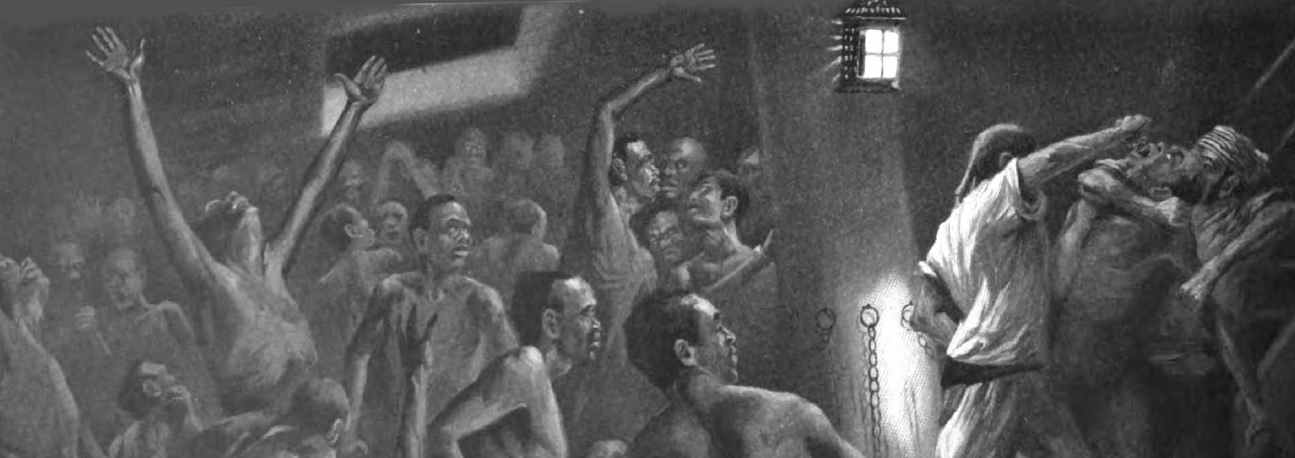
Websites
- Afro-Louisiana History and Genealogy 1719-1820 – ". . . Afro-Louisiana History and Genealogy 1699 - 1820 Database, a user-friendly, searchable, online database that is freely accessible to the public."
- Caribbean Family History Compensation History by Guy Grannum – “This database has been compiled from the returns of people who received compensation following the 1833 emancipation act which freed slaves in the British colonies in the Caribbean, Bermuda, Belize, Guyana, Mauritius and Cape Colony (South Africa).”
- First Blacks in the Americas (CUNY Dominican Studies Institute) – “ . . . is a fully bilingual (English and Spanish) digital educational platform devoted to disseminating sound historical information about the early presence of people of black African ancestry in the first colonial society of the Americas of modern times, the society of the colony named La Española (‘The Spanish One’) by the Spanish colonizers when they arrived in 1492 and throughout the sixteenth-century. .”
- List of Presidents of the United States who owned slaves – Wikipedia
- Manuscript Collections Relating to Slavery (New York Historical Society) – “The library of the New-York Historical Society holds among its many resources a substantial collection of manuscript materials documenting American slavery and the slave trade in the Atlantic world. The fourteen collections on this web site are among the most important of these manuscript collections.”
- Slave Deeds of Buncombe County, NC – ". . . compiled a list of the documents that record the trade of people as slaves in Buncombe County."
- The Slave Societies Digital Archive (formerly Ecclesiastical and Secular Sources for Slave Societies) – " . . . preserves endangered ecclesiastical and secular documents related to Africans and African-descended peoples in slave societies. SSDA holdings include more than 700,000 digital images drawn close to 2,000 unique volumes dating from the sixteenth through twentieth centuries that document the lives of an estimated four to six million individuals. This collection contains the most extensive serial records for the history of Africans in the Atlantic World, and also includes valuable information about the indigenous, European, and Asian populations who lived alongside them."
Websites Cont.
- Slavery Images: A Visual Record of the African Slave Trade and Slave Life in the Early African Diaspora – “This educational resource is a two-part website created for teachers, researchers, students and the general public. It exists to assist anyone interested in visualizing the experiences of Africans and their descendants who were enslaved and transported to slave societies around the world. ”
- Slavery and Remembrance: A Guide to Sites, Museum, and Memory – "A collaboration of UNESCO’s Slave Route Project, The Colonial Williamsburg Foundation, and dozens of sites and museums across the globe, Slavery and Remembrance aims to broaden our understandings of a shared past shaped by slavery and slave trade, the ways in which we collectively remember and forget, and the power of legacies to forge our present and future."
- Trans-Atlantic Slave Trade Database – “. . . comprises 36,000 individual slaving expeditions between 1514 and 1866. Records of the voyages have been found in archives and libraries throughout the Atlantic world. They provide information about vessels, routes, and the people associated with them, both enslaved and enslavers.”
- UNESCO Slave Trade Archives Project – “. . . launched in 1999 with the aim of improving access to, and safeguarding of, original documents related to the transatlantic slave trade and slavery throughout the world.”
- Unknown No Longer: A Database of Virginia Slave Names – “The Virginia Museum of History & Culture launched Unknown No Longer in 2011 to make accessible biographical details of enslaved Virginians from unpublished historical records in its collections.”
